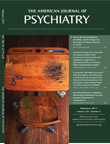Propofol Addiction Initiated by Anesthetic Use
A 34-year-old female midwife was admitted to our hospital for propofol detoxification. The patient had no history of substance abuse or psychiatric disorders as well as no family history of substance use disorders. She suffered from a severe form of Crohn's disease, which resulted in her undergoing more than 28 necessary colonoscopies and surgeries between 1991 and 2008. Propofol was used for sedation and anesthesia in the majority of all her medical procedures. After her first surgeries, the patient described feeling “high and light-headed” and indicated that she “liked” the postanesthetic effect of propofol but had no craving for the drug between the surgeries.
In 2000, while faced with a variety of stressors and following renewed colonoscopies in which propofol was administered, the patient experienced a strong desire for the drug's euphoric and relaxing effects. She started self-medication with propofol, which she stole from her workplace. While keeping the dosage of each injection constant at 200 mg, she increased the frequency of the injections up to 5–7 times per day. For at least 1 year, the patient consumed propofol nearly everyday and was only limited by availability. During an inpatient treatment for Crohn's disease, she self-administered propofol twice through her central vein catheter and was found somnolent. However, she decided to visit our department for addiction treatment only after a colleague found the stolen propofol in her handbag (with the consequence being that she lost her job).
Footnote
References
Information & Authors
Information
Published In
History
Authors
Funding Information
Metrics & Citations
Metrics
Citations
Export Citations
If you have the appropriate software installed, you can download article citation data to the citation manager of your choice. Simply select your manager software from the list below and click Download.
For more information or tips please see 'Downloading to a citation manager' in the Help menu.
View Options
View options
PDF/EPUB
View PDF/EPUBLogin options
Already a subscriber? Access your subscription through your login credentials or your institution for full access to this article.
Personal login Institutional Login Open Athens loginNot a subscriber?
PsychiatryOnline subscription options offer access to the DSM-5-TR® library, books, journals, CME, and patient resources. This all-in-one virtual library provides psychiatrists and mental health professionals with key resources for diagnosis, treatment, research, and professional development.
Need more help? PsychiatryOnline Customer Service may be reached by emailing [email protected] or by calling 800-368-5777 (in the U.S.) or 703-907-7322 (outside the U.S.).

